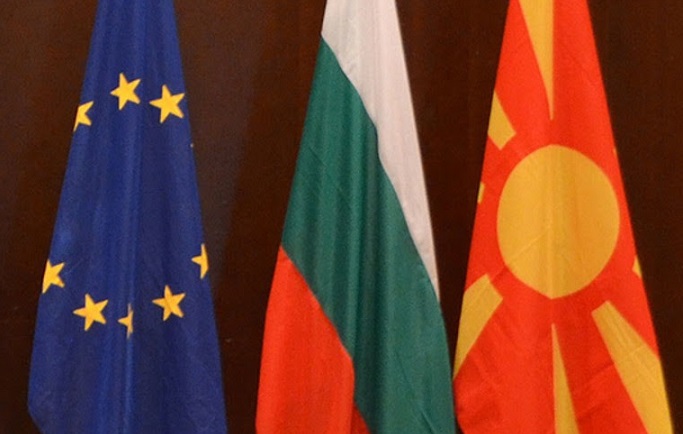Last year, after 17 years in the waiting room of the EU, Macedonia formally began the process of negotiations with the Union by opening the first intergovernmental conference. Explanatory and bilateral screening for harmonization of European legislation is ongoing and this process is expected to end in November this year. However, in order to continue the country’s European path, constitutional amendments are necessary with the inclusion of Bulgarians in the Constitution, for which the government and the opposition have opposed views. However, despite all this, the government’s projections are that by 2030, the country should become a member of the EU. The conclusion is that this year 2023 will be crucial for the continuation of the European integration path of the country.
By accepting the so-called “French proposal” on July 17 last year, after 17 years of candidate status for EU membership, Macedonia held the first intergovernmental conference with the Union, which formally began the process of negotiations with the EU.
The condition for continuing the European integration process and holding the second intergovernmental conference, which will open the first negotiating cluster, namely the constitutional amendments, is contained in the Bilateral Protocol, which was signed by the heads of the diplomatic missions of Skopje and Sofia, Bujar Osmani and Ekaterina Zaharieva on July 19 last year. In the proposed conclusions of the French presidency, it was stated that the Protocol is an integral part of the negotiation framework for Macedonia and that the EU will monitor the surrounding progress.
In order to actually open the negotiations, the screening process of the country’s legislation should be completed first.
For the time being, the Macedonian Parliament does not have a two-thirds majority to change the Constitution, while some parties condition the voting for constitutional changes with early elections. Prime Minister Dimitar Kovacevski repeatedly called on all 120 deputies to show responsibility for these and future generations and support Macedonia’s accession to the EU, and put party interests aside, because, he says, “citizens want to be part of the EU, and the future to the citizens is an equal obligation of all political parties in the Parliament”.
After the Government accepted the “French proposal” for the start of negotiations in July last year, the opposition VMRO-DPMNE said that they will not vote for opening the Constitution and for inserting the Bulgarians into it. After the proposal was voted on in the Parliament, the leader of the opposition, Hristijan Mickoski, showed notarized statements from all the members of his parliamentary group, with which they undertake that they will not allow constitutional changes.
In September, the opposition demanded holding a referendum to annul the Good Neighborly Agreement with Bulgaria, which Parliament Speaker Talat Xhaferi rejected as unconstitutional. Later, the Levica party also requested a referendum, which was also rejected by Xhaferi.
The leader of VMRO-DPMNE Mickoski in October, ten days after the publication of the EC Report on the progress of the country, said that they will not support opening and interventions in the Constitution until the European Union gives guarantees that the country will enter the Union and that we will not be subject to an additional veto by Bulgaria.
When someone from Europe and Brussels will come and give a clear guarantee to this Macedonian people and to the citizens of Macedonia, then we will be able to sit down and talk. Until then, there will be no changes to the Preamble and no interventions in the Constitution, Mickoski said then.
Some parties from the Albanian block, on the other hand, condition the constitutional amendments on the deletion of the “20 percent” norm from the Constitution, that is, on the Albanian language becoming equal to the Macedonian language.
About European integration last year, about what we can expect this year on that plan, MIA spoke with political analyst Marko Trosanovski, president of the Institute for Democracy Societas Civilis – Skopje.
Trosanovski believes that the past year may have been the culmination of the frustrations that this country experienced through the process of European integration for the past 15 years, and as such it caused a great polarization in society, that is, a significant drop in the credibility of the EU and perception towards it, although according to polls, support is still high.
However, if you go deeper into the results, you can see that people increasingly believe that the reforms are not crucial for progress in the process, and consequently, they will put less pressure on the political elites to deliver essential reforms, Trosanovski told MIA.
He reminds that the inclusion of bilateral issues with Bulgaria in the Negotiating Framework is a fact and something that will further potentially problematize the process of accession to the EU.
In terms of what we can expect from integrations in 2023, he mentions the completion of the screening, a report on the explanatory screening and an EU report on how we stand in that field.
However, the continuation of the negotiations and the second intergovernmental conference is of course conditioned on including the Bulgarians in the Constitution, and it is fair and objective to say that we have started the negotiations, but that we will not continue them, if that does not happen, Trosanovski emphasized.
He reminds that as a state and as a society, we have until November to do that, otherwise, there is a chance for the country to separate from Albania and re-enter a spiral of waiting and uncertainty.




Comments are closed for this post.